- Home
- Howard Jacobson
The Dog's Last Walk Page 2
The Dog's Last Walk Read online
Page 2
They did not, let me be absolutely clear, shout ‘Show us your willy!’ at me. I know this a) because I am not the sort of man to whom women shout that sort of thing, and b) because when I looked interrogatively their way, they did not look affirmatively back. Who they were actually addressing I had no idea. There were, in the vicinity, several men young and presentable enough to arouse the women’s curiosity. Ask them what they thought.
What interested me more was the women themselves. Reader, they were not girls out on a hen night. They were mothers, grandmas, materfamiliases. I caught myself tutting. But in other contexts, I remembered, I applaud the unwithered Cleopatra hopping forty paces through the public street, and praise the gap-toothed Wife of Bath for her unfettered appetite. I choked back further disapproval and waved (my arm) in solidarity. So long as there are women laughing – laughing at men, sex, age, propriety, laughing at the very idea that they shouldn’t be laughing – we are safe. From one sort of tyranny at least.
Experience is lovelier than innocence
We try to be above babies in this column. We don’t dislike them exactly. It’s hard to dislike a thing that hasn’t yet had time to form objectionable political opinions or the habit of reading thrillers. It’s more that we’re afraid of them. What are they thinking, what do they know about us, why that uncanny scrutiny? Or it could just be with babies as it is with children in general – if you never much enjoyed being one yourself, you aren’t going to care for any manifestation of them thereafter. And I was a self-hating baby.
So I am as indifferent to the royal arrival as I am allowed to be, what with bells chiming, helicopters circling, fountains spouting blue water and the media’s ceaseless unctioneering. My indifference wavered for a moment, I confess, when Kate told the cameras she had found the experience of giving birth ‘emotional’ and the baby looked at her with an expression much like his great-grandfather Philip’s. ‘Emotional! I should bloody well hope so!’ He would no more have been expecting a treatise on the joy and pains of parturition than I was, but it must have crossed his mind to wonder, if ‘emotional’ was the best his mother could muster, what sort of family he had been born into. This isn’t republicanism speaking. I am no more a republican than I am a royalist. We are all fools when it comes to what we believe, but few are more foolish than those who inveigh against royalty for being undemocratic, when the demos itself can’t gorge on it enough. If you have a problem with the royal family, brother, take it up with their legions of loyal subjects.
I don’t know whether republicans dream of removing the royal family by diktat, but as things stand they’re caught in the bind of believing in a democracy of which the people are manifestly unworthy. It’s the way the ‘people’ let them down that turns every democrat into a dictator in the end. A paradox for Prince George to chortle over in later years at Eton or Marlborough when they’re trying to drill the word ‘emotional’ out of him.
But enough with babies. While the rest of the country was waiting and wondering last week, I was at a party celebrating my mother-in-law’s hundredth birthday. Thou met’st with things new born, I with things dying, except that dying was the last thing on the minds of my mother-in-law’s guests, only one of whom could match her in years, though others were coming up fast on the inside lane. Being a hundred takes some getting your mind around, even if you’re more than halfway there. Think of it, reader – to be born in 1913, before the First World War had started, before women had the vote, before the Russian Revolution, Nazis, Twitter.
I used to fear the very old in much the same way I fear the very young. And for similar reasons. If we don’t know where the young have been, we don’t know where the old are going. Both can stare you out of countenance, make you feel you are of no consequence, reduce you to the role of bystander, as though the serious business of life takes place at either end, and you are caught between without a purpose. Isn’t that what they are meaning to tell you when they take your hand, the baby with its absent, unfathomable grip, the old with their Ancient Mariner-like urgency – that you are marooned in the middle way, having forgotten what you were, and ignorant yet of what you will be?
Now, as I prepare to join the ranks of the old, I feel quite differently about them. They are, of course – this goes without saying – more fun to be with than the young. Yes, there is some repetition to get over, and a measure of conceit, because they know it’s no small achievement to have survived the wreckage of a violent century. They would like a little congratulation. I marvel that the ninety-year-old woman sitting beside me swims in the sea every morning whatever the weather, and that she will be driving back to the Sussex coast when the party’s over. But it’s when she starts to turn on the charm that I move from admiration to fondness.
We are having an adventure, whispering into each other’s ear – I’m the deaf one – recalling a time that never was when we were very close indeed. ‘I didn’t think we’d get to enjoy another afternoon like this again,’ she says, though she knows as well as I do that we haven’t enjoyed a comparable afternoon, or indeed any afternoon, before. I don’t have to humour her. She knows what’s true and what isn’t. She is enjoying the fiction, exercising her flirtation muscles, that’s all. Checking that they are still in working order. And they are.
A man of 101, erect, ironical and elegant in a fine Savile Row suit, inclines his head to every compliment. He knows he creates a flutter in the women of ninety, while inspiring a no less selfish hope in the rest of us. ‘Touch me if you want to,’ he says. ‘There will be only a nominal charge.’
Meanwhile, my mother-in-law Dena, as queenly as Cleopatra, receives salutations from those who love her. Life beats as fervently in her as it ever did. She greets her friends, looking deeply into their faces as though they share more than they could relate if they lived their lives twice over. So much narrative, so many judgements made and reserved, such wealth of human knowledge. Against the odds, it’s memory they try hardest to hold on to. It’s memory, they know, that keeps you beautiful. I love being in the press of them, and realise with a pang why it’s this beauty I care for over the beauty of a newborn child. Experience is lovelier than innocence.
How to live forever
Let me see if I’ve got this straight. If I eat five 80g portions of fruit and vegetables a day, I’ll live longer. But if I eat seven 80g portions of fruit and vegetables a day, I’ll live longer still. I forget how much longer I was going to live when I was on five 80g portions – that’s history now, anyway – but under this new regimen of seven 80g portions of fruit and vegetables a day, I’ll reduce my risk of dying of heart disease by 31 per cent and my risk of dying of cancer by 25 per cent, which ought to mean I’ve increased my chance of living longer by a total of 56 per cent. But that’s 56 per cent of what? Don’t I need to know at what age I was going to die when I wasn’t eating any 80g portions of fruit and vegetables before I can reliably calculate the age I am likely to live to now that I am eating seven?
Or am I simply being measured against someone else – say, you, reader, if you aren’t eating the number of vegetables I am? Am I chalking off the years I’ve got left against the years you haven’t? It’s not pleasant to think we are competing for life, but that’s been the way of it ever since we raced one another out of the primeval soup. At least then, however, we just pushed one another back in and beat our chests. We didn’t crow over grams and percentages. Today I can’t see anyone peeling an apple without wondering how much longer than me he’s got.
But let’s suppose – to keep you out of it – that I increase the number of portions of fruit and vegetables I eat a day to fifteen or twenty. And let’s suppose further that I up the dosage from 80g to 100g or even 150g. After the rough equivalent of thirty bananas, twenty-five tomatoes, four turnips and two nosebags of swedes daily, could it be that I’m looking at eternal life? This is a serious question with significant demographic and economic consequences for the planet: is it now becoming possible for us to eat our way
to immortality?
There was a time when all but the rich could be relied upon to scoff themselves into an early grave. In working-class Manchester, we spooned gravy jugs of grease onto everything we ate at home, and ordered extra of every extra at every restaurant we went to. We couldn’t eat chicken curry without an accompaniment of poppadums, rotis, chapatis, stuffed naans, rice, raitas, bhajis, saags, paneers, okra and Bombay potatoes, and we couldn’t eat Singapore noodles without a side dish of Singapore noodles.
By curry I mean the first curry of the evening, which we usually put away after getting back from school and before hitting the Ritz. The real curry – the vindaloo we ate between midnight and two in the morning, depending on how the Ritz had gone – came as an extra to itself. We were growing boys. Our mothers were always telling us we looked thin. Hence the cheese-and-pickle sandwiches they stuffed into our satchels to supplement school lunch, which they knew, without seeing it, to be inadequate. In percentage terms, I’d say my chance then of living to the age I am now was 56 per cent less, but don’t ask me 56 per cent less than what, or how much further the remaining 44 per cent is going to get me.
If I take more care of myself now, it’s as much because there’s no one left not to take care of myself with as because I want to live forever. The fun’s gone. I occasionally see a few of the friends I used to drink wine with, but we spend the first half of the evening trying to decide whether we’ll manage to get through a whole bottle between the five of us and, since we know we won’t, whether to go for a small carafe or push the boat out and order three glasses which we’ll divvy up. And even then there’s always one of us who’ll want to check that the alcohol content doesn’t exceed 11.5 per cent, each half a per cent being equivalent to a year of what’s left to us of lives that some would say are no longer worth living.
Smoking’s gone the same way, of course, and even yogurt’s not the wild indulgence of old. Like everybody else, I went for Greek yogurt whenever it was it became fashionable, but then came the warnings and I changed to low-fat yogurt until that turned out to have too much sugar in it, which suddenly made Greek yogurt all right again, provided it was low-fat Greek yogurt (which meant it didn’t taste like Greek yogurt), though here again there was a threat, this time in the form of calcium, too many milligrams of which can reduce your life expectancy by the number of years you’ve saved by not eating full-fat yogurt.
And now I read that the government is issuing guidelines to restaurants on how big portions should be, in order to reduce the gross weight of the population – a problem that could have been averted had that same population been allowed to die off naturally, as in the old days, as a consequence of all those naans and rotis and never eating a vegetable. How long before someone in the Department of Health wakes up to the fact that the healthier they make us, the longer we will live (up by 56 per cent as I write), and the longer we live, the more rubbish we will want to eat?
We face longer, bleaker lives anyway, with less salt in our salted cod, less fat in our fatty chips, less dough and diameter to our pizza bases and therefore less of the loaded, sloppy toppings that those of us who love pizzas love them for. If it wasn’t for the danger I face on a daily basis from mad cyclists – and I only mention this to wind up the mad cyclists who routinely write me hate mail – I’d say I’ve every chance of making it to 150. Time enough to consume about a million and half grams of fruit and vegetables, though I wouldn’t trust my maths.
God is me
Saw God last week. Not in a sunset or a rainbow, not on Mount Sinai or Uluru, not in Chartres Cathedral or on Glastonbury Tor, and certainly not on the road to Damascus, where these days one is more likely to encounter the devil. No, I saw God at Tate Modern.
If Nicholas Serota, the director of the whole Tate caboodle, thinks I’m talking about him, well, he’s not a million miles wide of the mark. It was thanks to his expansive curating, anyway, that I had my big experience, between coffee and a full English breakfast with a 10 per cent discount for Tate members.
It is, of course, the current sell-out Henri Matisse exhibition I’m talking about – Matisse himself infirm and chair-bound, but the art alive as though the wild spirit of an all-creating God blows through every dab and shape of colour. The work is so exceptionally alive, in fact, you half wonder whether the infirmity is essential to it. What we can say for sure, after this, is that there’s no better route to spiritual beauty than through an apprehension of mortality.
Which might have been what Matisse was getting at in his famous conversation with Sister Jacques-Marie, the Dominican nun who was closely involved with him in his designs for the Chapel of the Rosary at Vence. Dismayed to hear Matisse talk of making the chapel for his own pleasure, Sister Jacques-Marie reminded him that he had once said he was making it for Almighty God. ‘Yes, but that God is me,’ he told her.
Matisse and the nun were very close – close enough to share a joke. Rumour had it that she posed nude for him. (Who wouldn’t pose nude for Matisse?) We must assume, whether that’s true or false, that they would on more than one occasion have discussed the sacred and the profane. And to an artist it is profane to talk of an Almighty God who exists outside the art. ‘Yes, but that God is me’ is another way of insisting that divinity is in the work or nowhere.
Picasso found it hard to forgive Matisse for working on a chapel. He missed the point. Even the stained-glass windows have no religiosity about them. They celebrate the wonders of the visible world – never so blindingly visible until made so by an artist.
No one should miss this extraordinary exhibition. Ignore the critical unanimity of enthusiasm. I know, I know, agreement kills. Especially when those doing the agreeing are art critics. But this time, reader, miracle of miracles, they are right. And what is more, they are right in the name of art’s exhilarating example – the happiness of creation, fecundity, verve and vigour, colour – rather than those footling ironies to which, in the name of conceptualism (the unmade-bed of the embryo artist’s mind), Tate Modern has too often granted indulgence.
We have been rude about Tate Modem in this column. A palace of sterility we have called it. But we are happy now to take all that back. Had it never done better than this show, and were it never to do better again, its existence is now justified.
And how clever of the curators to have eschewed cleverness – that curse of the contemporary – and entitled the exhibition simply Matisse: The Cut-Outs, with its suggestions of kids messing about at school with scissors and coloured paper. Was ever a show less dauntingly described? And as it is described, so it proceeds, fourteen bursting rooms of such exuberant creation that you discover you are wandering in and out of them – for this is a show to dawdle without aforethought through – in an unaccustomed mood, an unaccustomed expression on your face. Is that a smile? I would not want to make this the once and forever criterion of a good art show, but never have I seen so many people in an art gallery looking happy.
Nor do I want to make it sound as though we were all in the grip of some joyous freedom from exactingness. The greatest art is that of concealing art, and the intellectual life is never better served than when intellectuals speak their profundities in the language of men talking to other men. No artist was ever not an intellectual to some degree, and we’d be fools to suppose that the lightness and immediacy that Matisse achieved with his cut-outs was a triumph of spontaneous or accidental mindlessness. But he was an artist of the greatest tact, and it is artistic tact to hide the means by which you come by your effects and the labours of technique and thought that enable you at last to produce work that seems labour-free.
You can look for hours at a time at those famous blue cut-out nudes, which somehow are as much sculpted as scissored, as though a flat piece of paper has a third dimension that only a great artist can find in it; yet no matter how long you look, you will not discover how this is achieved, how the paper folds back in time as well as space upon itself, and how even the still spaces between the shapes
possess the dynamism of movement and change.
Whatever mischief Matisse intended by saying ‘God is me’, one cannot deny the mystery of creation before these works. The Judaeo-Christian God shaped man from clay, breathed into his nostrils and then expected him to do as he was told. Being cut into life by Matisse’s scissors for no other purpose than to express natural vitality and enjoy the simple fact of being strikes me as preferable.
‘I have always wished my works to have the lightness and joyousness of a springtime which never lets anyone suspect the labours it has cost,’ he wrote in 1948. But he worried that a young painter, eager for fame, would see only apparent facility and negligence, and use that as an excuse to skip the labour. The inspiring paradox at the heart of this magnificent show is that you have to toil to achieve lightness and that it’s only when you are autumnal that you can create the joyousness of springtime. Ripeness is all.
Sweet boy, that Jihadi John
So how come I’m not the world’s most wanted man? I was thin-skinned, sweet-natured, loving – ‘a beautiful young man’ in every way, my mother remembers – so where did it all go wrong for me? Even my father – a person not given to idle praise – remarked on the gentleness of my disposition. ‘Isn’t he a bit kind?’ I recall him asking my mother when he thought I wasn’t listening. ‘A bit kind for what?’ my mother wanted to know.
I have a faded image of my father shrugging. He didn’t like having to explain himself. But I knew what he was getting at. I lacked the qualities of a warrior. We were naive in those days. We didn’t understand that a gentle nature was the ideal breeding ground for murderousness. We thought it simply denoted incipient homosexuality.
At school my reputation for being a beautiful person was enhanced by my bookishness, my timidity and by the Gothic-script initials my aunt had embroidered onto my blazer pocket. If ever there was someone who was never going to commit an atrocity – and was therefore, by the inverse logic of these things, bound to go on and commit a whole string of them – it was me. There I sit, in photograph after photograph, just to the right of the headmaster’s knees, looking seraphic and isolated – an angel in a line of grinning devils – the quintessential terrorist-to-be aged nine. Some of those photographs even came with my face already encircled so that the newspapers wouldn’t have to hunt me out once the extent of my subsequent criminality became known.

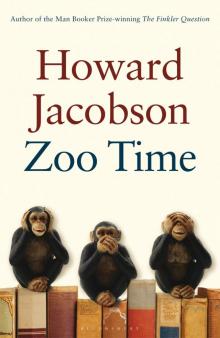 Zoo Time
Zoo Time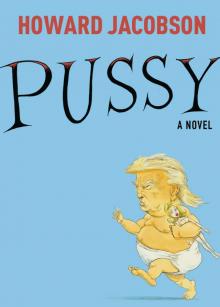 Pussy
Pussy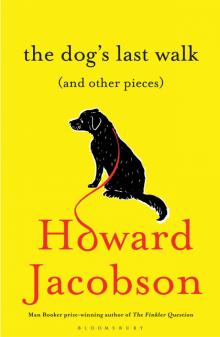 The Dog's Last Walk
The Dog's Last Walk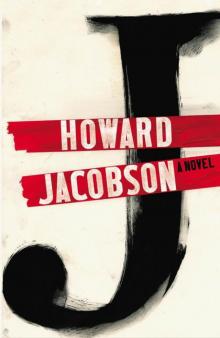 J
J Shylock Is My Name
Shylock Is My Name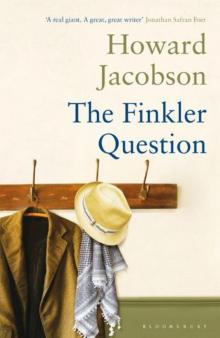 The Finkler Question
The Finkler Question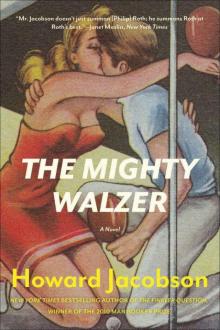 The Mighty Walzer
The Mighty Walzer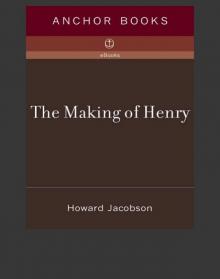 The Making of Henry
The Making of Henry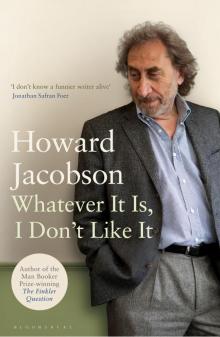 Whatever it is, I Don't Like it
Whatever it is, I Don't Like it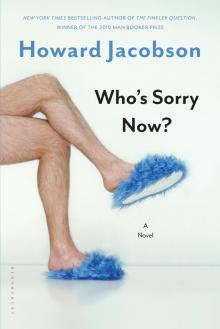 Who's Sorry Now?
Who's Sorry Now? Kalooki Nights
Kalooki Nights